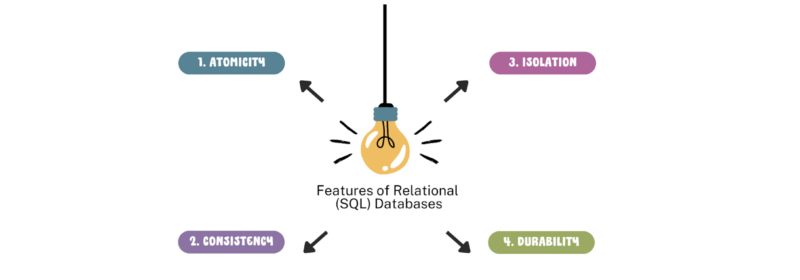Tag: Consistency

Relational vs. Non-Relational Databases: Features and Benefits
Learn the important features of relational and non-relational databases, their benefits, and when to use them here. Couchbase breaks down the key differences.

Data Consistency Models & Performance: Couchbase vs. CockroachDB
When it comes to Couchbase vs. CockroachDB, what are the major differences? This post details important distinctions in data consistency modeling.

Introduction To Jepsen Testing At Couchbase
Intro As most of you know, Couchbase is a database that provides users with a range of consistency and fault tolerance options to ensure that the state of their data meet certain criteria or guarantees. Users can specify varying levels...

Define Your Own Durability Requirements in Couchbase with the SDKs
Learn to set your own durability requirements, such as waiting until data has persisted or replicated, when saving data to Couchbase Server.

Concurrency Behavior: MongoDB vs. Couchbase
Multi-User Testing David Glasser of Meteor wrote a blog on an MongoDB query missing matching documents issue he ran into. It is straightforward to reproduce the issue on both MongoDB MMAPv1 and MongoDB WiredTiger engine. Here are his conclusions...

Distributed Databases and Replication Design
One of the most important elements of distributed database architecture is replication. In fact, it defines the database architecture. It determines whether or not the data is consistent / available. Master / Slave Writes are executed on master nodes, replicated...
Top Posts
- Couchbase 8.0: Unified Data Platform for Hyperscale AI Applicatio...
- Integrate Groq’s Fast LLM Inferencing With Couchbase Vector...
- Capella Model Service: Secure, Scalable, and OpenAI-Compatible
- Data Modeling Explained: Conceptual, Physical, Logical
- What are Embedding Models? An Overview
- Data Analysis Methods: Qualitative vs. Quantitative Techniques
- What are Vector Embeddings?
- What Is Data Analysis? Types, Methods, and Tools for Research
- Application Development Life Cycle (Phases and Management Models)